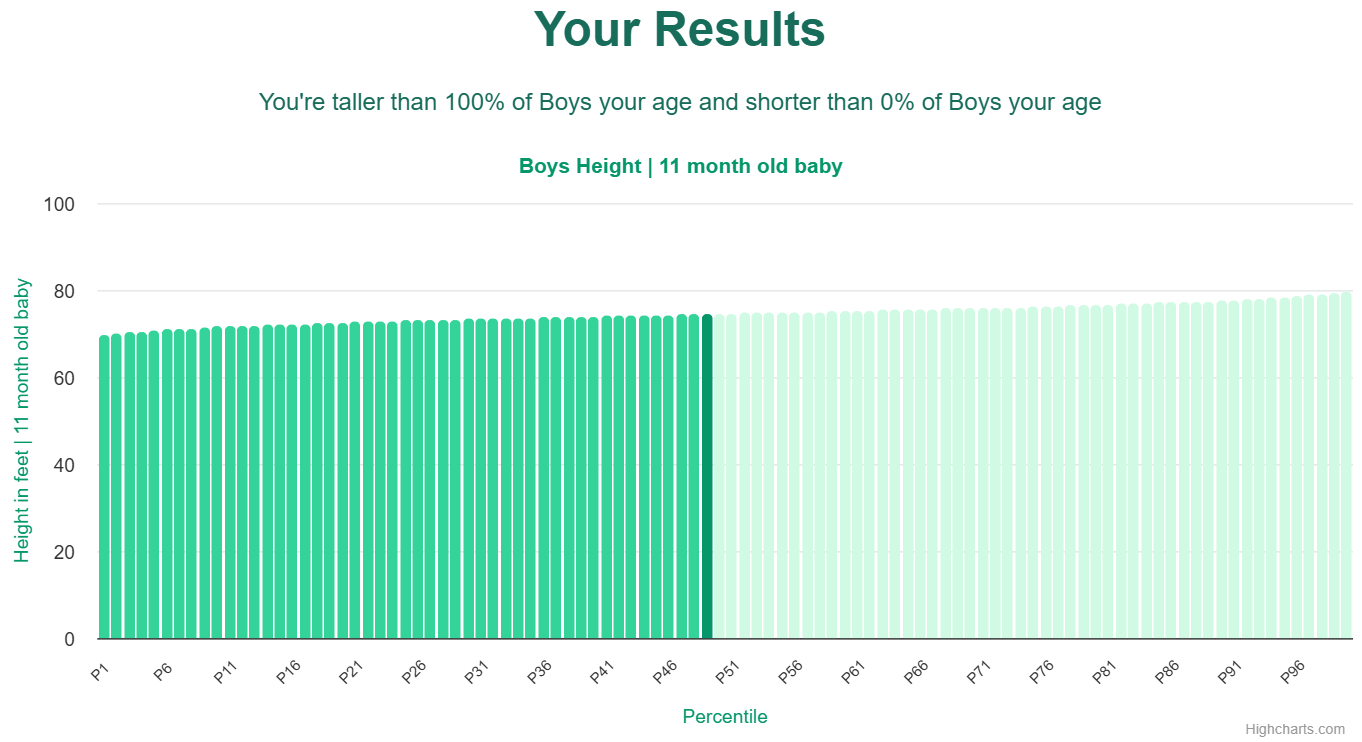Boys Weight chart in lbs for babies 11 month old baby

General Summary: 11 month old baby boys weight
In most cases, weight measurements for 11 month old baby boys will be in the range between 16 and 25 lbs. The average weight for 11 month old baby boys is 20 lbs, according to the CDC and anonymized data from users.
All Results
Enter your weight measurements above to see how they compare
So far, we have recorded [0] weight measurements for 11-month-old-baby boys on LifeMeasure!
(chart updates daily)
See more ages